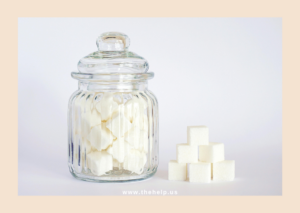
Artificial sweeteners are everywhere—from your favorite “diet” sodas to that tiny pink or blue packet at your local coffee shop. They promise sweetness without the calories, but are they good for you in the long run? Let’s break it down with facts, examples, and practical tips.
The Good Side of Artificial Sweeteners
1. Calorie Control
One of the biggest benefits of artificial sweeteners is their low-calorie nature. This can be a game-changer for people trying to manage their weight or cut back on sugar. For instance, swapping sugar for aspartame or sucralose in coffee can save hundreds of calories over a week. That’s great if you’re watching your intake.
2. Blood Sugar Management
Artificial sweeteners don’t spike blood sugar levels like regular sugar does. That’s why they’re often recommended for people with diabetes. A study published in Diabetes Care shows that sweeteners like stevia and monk fruit don’t negatively affect blood sugar levels, making them a safer option for diabetic individuals.
3. Dental Health
Unlike sugar, artificial sweeteners don’t contribute to cavities. If you’re sipping on a diet soda instead of a sugary one, your dentist will likely thank you.
The Not-So-Sweet Side
1. Gut Health Concerns
Emerging research suggests that some artificial sweeteners may disrupt gut bacteria. For example, a study in Nature found that saccharin could alter the gut microbiome, potentially affecting digestion and overall health. While these effects are still being studied, it’s worth noting.
2. Cravings and Overeating
For some people, consuming artificial sweeteners can lead to an increased craving for sweet foods. It’s like tricking your brain into thinking, “Where’s the real sugar?” This can result in overeating later.
3. Long-Term Safety Debate
Artificial sweeteners like aspartame have been thoroughly tested, and the FDA considers them safe when consumed within recommended limits. However, some studies link excessive consumption to potential health risks, like headaches or increased appetite. Moderation is key.
Tips for Safe Use
- Stick to FDA-Approved Options: Aspartame, sucralose, and stevia are generally safe when used in moderation. Check labels and opt for sweeteners backed by research.
- Rotate Sweeteners: To minimize potential risks, don’t rely on one sweetener exclusively. Mix it up with options like monk fruit or erythritol.
- Limit Processed Foods: Artificial sweeteners are often found in ultra-processed foods, which aren’t great for overall health. Focus on whole, natural foods.
Natural Alternatives to Consider
If you’re looking for something closer to nature, try honey, maple syrup, or coconut sugar. While they do contain calories, they also offer trace nutrients and antioxidants. Plus, they taste amazing in tea, coffee, or baking.
Artificial sweeteners can be a helpful tool for cutting calories and managing blood sugar levels, but they’re not a magic solution. Long-term use appears safe for most people when consumed in moderation, but potential impacts on gut health and cravings are worth considering.
Ultimately, the best approach is balance. Use artificial sweeteners sparingly, mix in natural options, and focus on an overall healthy lifestyle. Sweet success is all about making informed choices!
What’s your favorite sugar alternative? Share it with us in the comments. Remember to work smart and be a blessing to someone today. Stay safe and healthy!
Written by Jaie O. TheHelp